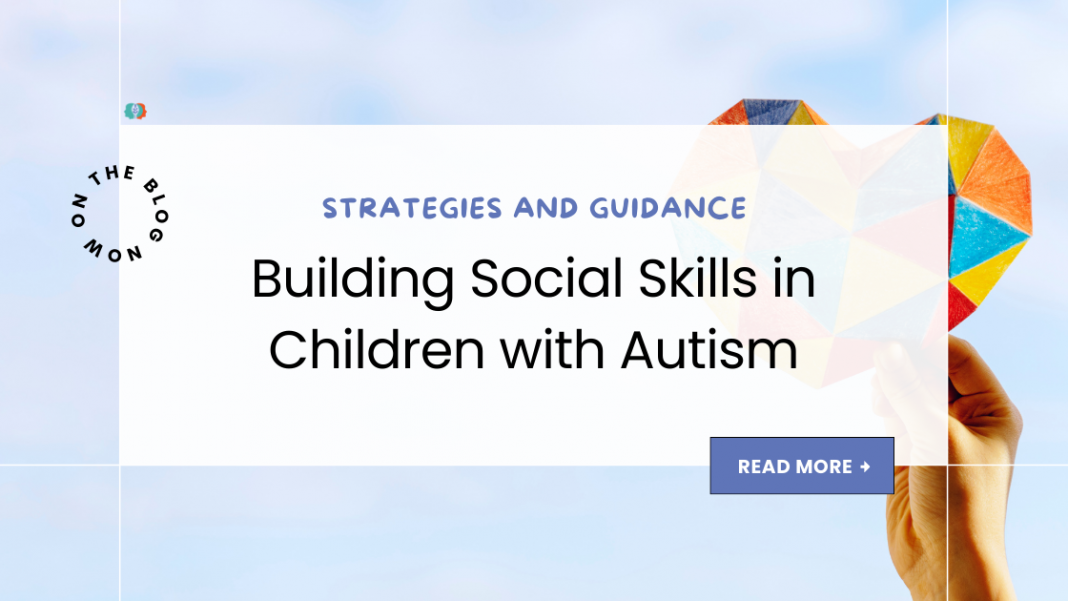Navigating the complex world of social interaction is a crucial aspect of childhood development, and for autistic children, this journey presents unique challenges and opportunities. Understanding and enhancing social skills in these children is not just beneficial; it’s imperative for their integration and success within the community. This detailed guide presents practical strategies for parents, educators, and therapists to cultivate social abilities in children with autism, thus fostering their confidence and sense of belonging.
Building Essential Social Skills in Children with Autism
Social competencies are a diverse set of skills essential for successful interaction and communication. For autistic children, acquiring these skills might not always be intuitive, often making social situations appear daunting. Enhancing these skills is not just about teaching interaction; it’s about equipping these children with a set of tools that will serve them throughout their lives, laying the groundwork for independence and personal growth.
The Crucial Role of Early Intervention
The adage “the earlier, the better” holds particularly true in the realm of autism spectrum disorders. Early social skills intervention can have profound long-term benefits. Personalized training that resonates with a child’s learning preferences and needs is the cornerstone of effective early social skills education.
Tailoring Training to Individual Needs
Acknowledging the individuality of each child’s abilities and challenges is paramount. Some may have a good grasp of verbal instructions but may find non-verbal cues perplexing. A well-balanced approach to social skills training should emphasize a child’s strengths while constructively addressing their areas of difficulty.
Structured Social Skills Training Programs
Speech therapists and educators lead engaging social skills programs using role-play and stories in supportive settings. These engaging methods boost learning retention and application.
Learning Through Play
Play is the natural language of children and a potent method for teaching social nuances. Therapeutic play, including the Floortime strategy and social robots, offers autistic children the chance to explore and learn social rules in a non-threatening environment.
Leveraging Technology for Social Learning
The digital age offers innovative tools to support social skill acquisition. Interactive applications and virtual reality can captivate children’s attention, presenting social scenarios in a way that is both educational and engaging, which is a key factor in the reinforcement of social learning.
Beyond Verbal Communication: Understanding Non-Verbal Cues
Effective social interaction is not limited to words; it encompasses non-verbal communication, too. Teaching autistic children about body language, facial expressions, and eye contact is as crucial as verbal communication, as these cues form the foundation of connecting with others.
The Benefits of Visual Aids
Visual aids like cue cards and picture schedules can be lifesavers for autistic children. These aids simplify understanding of social expectations and can diminish anxiety, making social interactions more manageable.
Utilizing Social Stories for Better Understanding
Crafting social narratives tailored to specific situations can be immensely beneficial. These stories prepare autistic children for what to expect in various social settings, promoting a sense of preparedness and boosting their confidence.
Role-Playing as a Learning Tool
Role-playing and modeling serve as practical tools for teaching appropriate social behavior. Through imitation and practice, children can internalize and reproduce positive social interactions.
Incorporating Peer-Led Learning
Involving neurotypical peers in social skills training can provide authentic socialization practice for autistic children, enriching their learning with a variety of social cues and interaction opportunities.
Fostering Empathy and Emotional Awareness
Developing emotional intelligence and empathy is fundamental for meaningful social connections. Activities that encourage emotional identification and expression can significantly enhance an autistic child’s ability to engage socially.
Consistency Across All Settings
It’s essential that social skills learned in structured settings are reinforced in the child’s everyday life. Consistent application across multiple settings is critical for the development of robust social skills.
Celebrating Every Milestone
Acknowledging each accomplishment, big or small, can greatly encourage an autistic child to persist in learning social skills. Positive feedback is a powerful motivator in reinforcing desirable social interactions.
Addressing Social Anxiety
It’s not uncommon for autistic children to experience social anxiety. Introducing them gradually to social environments and equipping them with coping mechanisms can alleviate their stress and make social interactions more approachable.
Therapy Animals: A Bridge to Socialization
Animals, particularly therapy dogs, can significantly reduce stress and serve as facilitators in social settings for autistic children, encouraging communication in a comforting manner.
Creating Inclusive Spaces
Fostering inclusive environments is about more than individual therapy—it’s about nurturing communities that understand and embrace individuals with autism, offering a robust support system for their social development.
Conclusion: A Collaborative Approach to Social Skill Enhancement
Developing social skills in autistic children is an endeavor that demands patience, insight, and personalized strategies. By utilizing a blend of structured programs, playful interactions, technology, and consistent practice, we can guide these children toward enhanced social understanding. Recognizing the unique gifts and challenges each child brings allows us to empower them to establish meaningful relationships and contribute to a society that values inclusivity and empathy.



